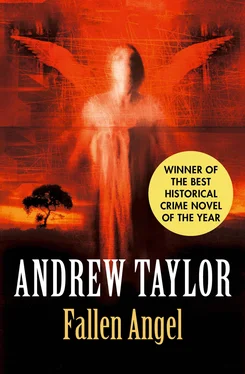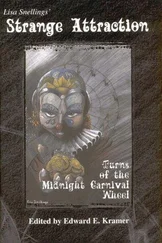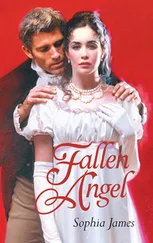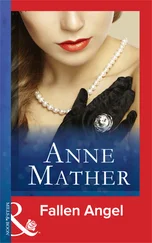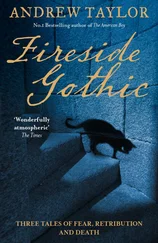‘I’m not being nosy. But she’s my responsibility in a way. And I have to make sure she’s not burning holes in the bedspread or leaving the fire on when she goes out.’
Eddie watched his mother on one of these incursions. He stood in the doorway of the back bedroom – a landlady’s dream: clean, tidy, smelling faintly of polish and Angel’s perfume. Thelma moved slowly round the room in a clockwise direction. She opened doors and pulled out drawers. On top of the wardrobe was a large modern suitcase.
‘Locked,’ Thelma commented, curious but not annoyed.
In the cupboard by the bed was a japanned box, and that was locked, too. ‘Probably keeps family papers in there, mementoes of her parents and her fiancé. Funny she doesn’t have any photographs of them. There’s plenty of room on the dressing table.’
‘You haven’t got any pictures of Dad,’ Eddie pointed out.
‘That’s quite different,’ Thelma wheezed, her attention elsewhere. ‘She’s got an awful lot of books, hasn’t she? I wonder if she’s actually read them.’ She peered at the spines. ‘You wouldn’t have thought she was religious, would you?’ His mother spoke the word ‘religious’ in a tone in which incredulity, pity and curiosity were finely balanced. ‘You’d never have guessed.’
Eddie noticed a bible, a prayer book and a hymnal. He ran his eyes along the row of spines and other titles leapt out at him: G. K. Chesterton’s biography of Thomas Aquinas; the Religio Medici of Sir Thomas Browne; The Christian Faith; The Four Last Things; A Dictionary of Christian Theology; The Shield of Faith; Man, God and Prayer.
‘She doesn’t go to church,’ Thelma said, her voice doubtful. ‘I’m sure we would have noticed.’ She drifted over to the dressing table, picked up a small bottle of perfume and sniffed it. ‘Very nice.’ She put down the perfume. ‘Mind you, it should be. That stuff isn’t cheap. You could feed a family of four on the amount she spends on dolling herself up.’
Insignificant though it was, the remark lodged in Eddie’s memory. It was the first sign of a rift developing between Thelma and Angel. His mother was by nature a critical person, always willing to find fault and never satisfied with anyone or anything for long. She pursued perfection all her life and would not have known what to do if she had caught up with it.
As a mild grey spring slipped into a mild grey summer, the carping gathered strength. Thelma fired criticisms like arrows – at first one or two, every now and then, but steadily increasing in number.
As with Stanley, so with Angel: Thelma did not try to get rid of her lodger any more than she had tried to get rid of her husband. Angel’s unwillingness to take remarks in the spirit they’d been uttered infuriated Thelma. But there was nothing she could do about it – Angel wore her placidity like a suit of armour.
On a sunny morning in the middle of summer, Eddie took a cup of coffee into the garden. His mother was out of the house for once – every four weeks she went by taxi to the health centre where she had her blood pressure checked and collected her monthly ration of pills and sprays – and he felt unusually relaxed. He wandered towards the trees at the far end.
The peaceful mood was shattered when he heard the back door opening behind him. He turned. Angel came towards him, picking her way between a weed-infested flowerbed and the long grass of the lawn. Her hair was loose, and she wore a short green dress and sandals. The sun was to her right and a little behind her, casting a golden glow over her hair and throwing her face into shadow.
‘I’m not disturbing you?’
‘No.’ He shrank back towards the fence.
‘It’s such a lovely day. I couldn’t resist coming outside.’
He sipped his coffee, scalding his tongue.
‘Do you know, I saw a fox the other day.’ Angel pointed down the garden towards Carver’s. ‘It went down there. Probably into the wasteland at the back.’
‘There’s a lot of wildlife there.’
‘Shame it’s such a mess.’ She stopped beside him, and he caught a suggestion of her perfume. Her eyes swung towards the council flats. ‘Still, better a jungle than something like that.’
Eddie nodded.
After a pause, Angel went on, ‘Have you noticed the woman with the binoculars? She’s often on the balcony with the geraniums.’
Only one balcony had geraniums. It stood out starkly from its neighbours partly because of this, and partly because of its tidiness, the fresh paint on the railing and the absence of a satellite dish. No one was standing there now.
‘I think she watches birds,’ Eddie said. ‘Her name’s Mrs Reynolds.’
‘She was there just now. I was looking out of my bedroom window, and for a moment I thought she was watching you.’
‘Are you sure? Why?’
‘She was probably looking at the house. Or at next door. Perhaps there’s a bird on the roof.’ She smiled at him. ‘In any case, even if she was looking at you, I wouldn’t take it personally.’
‘Oh no. Of course not.’
‘Old women do strange things.’ Angel glanced back at the house, and Eddie knew that Mrs Reynolds was not the only old woman she had in mind. ‘But it’s their problem, not ours.’
Over the summer, as Thelma’s criticisms multiplied, Eddie found himself warming towards Angel. The process was gradual and subtle. She would smile at him as they passed in the hall, or ask him what he thought the weather was going to do this morning and listen to his answer as if his opinion really counted. When Thelma was being more than usually absurd, Angel would occasionally glance at Eddie; and when their eyes met there was the delicious sense of a shared secret, of shared amusement.
Eddie was flattered and alarmed by these hints. Women had never shown any interest in him before, especially not beautiful women like Angel. Not that he liked her specifically as a woman, he told himself, but as a person. And there was no doubt that her beauty affected the way he responded to her: it added significance to everything she said and did.
Then came the first Sunday in September. It was a fine late summer day, and after breakfast Eddie decided to walk up to the Heath. (Since his father’s death he had lost his fear of going out.) He happened to glance back as he was walking up Haverstock Hill and noticed, some way behind him, Angel walking slowly in the same direction. Her presence irritated him. On his walks he liked to be among strangers. He quickened his pace and cut down the next side road. He looked back more than once but there was no sign of her. He thought that she had probably continued up Rosslyn Hill to Hampstead Village.
He spent a pleasant hour on the Heath. It was a place he avoided in the evenings because parts of it were rough and dangerous and, they said, haunted by men doing horrible things to each other. But in daytime at weekends and during the holidays the Heath was full of children, some with grown-ups, some without. Eventually he found a bench on Parliament Hill and watched irritable fathers flying kites for bored children. Below him stretched the city, brick and stone, glass and tarmac, blues and greys and greens, trembling like a live thing in the haze.
To Eddie’s delight, two girls of about eight began to do gymnastics near his bench. They were of an age when they were still unselfconscious about their bodies, when competition came naturally to them. One was wearing jeans, but the other – a girl with a pale, serious face spotted with freckles – wore a sweatshirt over a skimpy dress. Eddie watched her covertly. He tried to decide whether she was consciously teasing him, as Alison used to do in that far-off summer when she swung higher and higher, revealing more and more, and pretending that she didn’t know he was watching her. He stared at her, wondering how soft the skin would be above the bony knees.
Читать дальше
